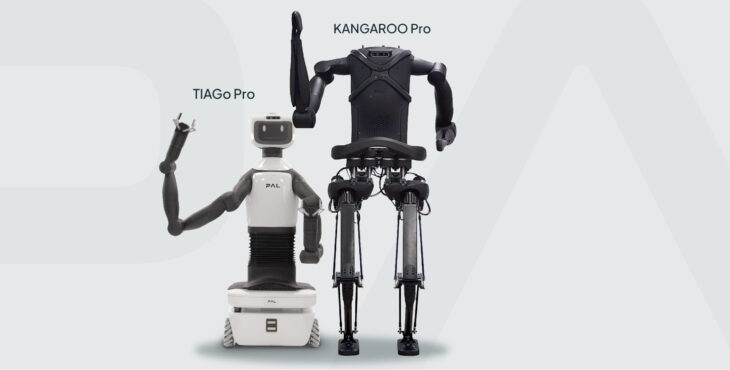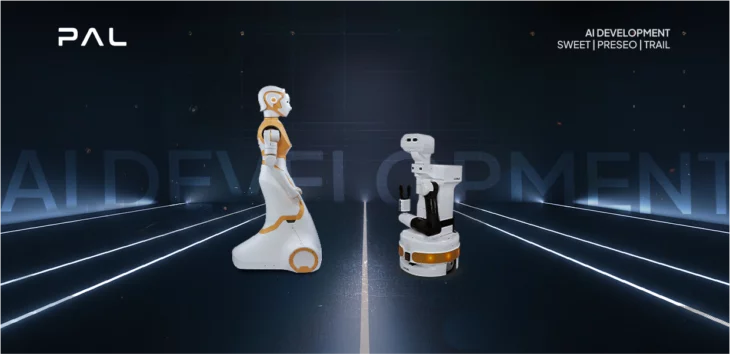SHAPES project
The EU project SHAPES, we are a partner in, will be starting use cases shortly, where ARI the robot will support users in their homes as a home robot. Our social robot ARI has been adapted to be used with the smart digital platform created during the project, in order to help older users with aspects of day to day living, including mobility and rehabilitation exercises, engaging them in social activities, and assisting them with specific tasks and reminders.
This project has helped fast-track the development of potential solutions to assist during the COVID-19 pandemic and beyond, such as the use of ARI the robot for supporting users, in particular older people that must remain at home and/or who are often greatly impacted by social isolation and loneliness. One of the means to tackle this is through the use of social companion robots, which assist older people in a humanised social manner to reinforce engagement.
The SHAPES “Smart and Healthy Ageing through People Engaging in supportive Systems” project aims to create an environment that supports deployment of digital solutions to support healthy and independent living for older individuals.
The SHAPES platform integrates smart digital solutions to collect and analyse older individuals’ health, environmental and lifestyle information, as well as provide personalized solutions. The goal of the project is to bring greater efficiency that increases healthcare provision across Europe.
During the SHAPES project we have been working with partners all over Europe to integrate multiple SHAPES software onto our ARI robot, including Clínica Humana’s ROSA Chatbot, SciFY’s games and TREE’s emotion recognition system.
ARI the robot is taking part in several project pilots in Europe, including in Spain, Italy, Greece and Ireland, with older people living in their own homes, sheltered apartments or residential homes.
PAL Robotics’ social robot ARI
PAL Robotics’ ARI is a high-performance robotic platform with human-like features, designed for a wide range of multimodal expressive gestures and behaviours, focused on social interaction. The robot consists of a mobile base, torso with an integrated Linux-based tablet, two arms and a head with expressive gaze. As a social robot ARI serves as a therapeutic assistant at hospitals, care-homes or end-user homes to foster social communication, reduce loneliness, stress, and increase overall user enjoyment and activity.

Pilots of social robot ARI in homes and residential homes
We are taking part in two SHAPES project pilots – in May 2021 we start with Pilot 1, and we will also take part in a second pilot which will begin later in the year.
During Pilot 1 ARI will support older people, at their apartments, with tasks including giving reminders, playing games, and making video calls. In the second pilot we’ll take part in, Pilot 4, planned for later in 2021, ARI will engage users socially with cognitive games in residential homes.
Pilot 1 through Clinica Humana
Pilot 1 will take place at Clínica Humana (Mallorca, Spain) starting in May. Clínica Humana is a private clinic with more than 7-years of expertise in chronic patient management and provides hospital care to seniors residences, communities and homebound patients.
End-users for this pilot are people between 70-80 years old, living in urban environments and in their houses or in sheltered housing. The pilot will be done with 4-5 participants for four weeks each.
During these pilots, based on user requirements, ARI, as a home robot, will be programmed to carry out some of the following actions:
- Detect and monitor temperature
- Establish a video call
- Send alerts to caregivers by call, SMS or other means about incidents
- Receive messages from caregivers and external people
- Detect and monitor falls
- Remind users of different events
- Prompt follow-ups
- Entertainment games and physical exercise games
- Show pre-selected images on the touchscreen
- Set up shopping lists and remind users to fill in the shopping list
Pilot 4 in residential homes
Pilot 4 will use ARI to play cognitive games with older people, where the robot will explain and instruct end-users on the games to promote engagement. This will be done, for instance, with the help of a psychologist, where the robot will be used as a complementary tool to promote engagement in cognitive games. At some pilot sites, such as in Ireland, in contrast, ARI will be used in individual homes, where the robot will initiate interaction and remind users to play games.

Developments in ARI for the project including a thermal camera
During the project, digital solutions from SHAPES partners are being integrated into ARI for enhanced capabilities such as fall detection and video calls. For that, ARI offers the Rest API so that digital solutions may call its functions externally, enabling the use of other programming languages (e.g. Java, Android). Moreover, digital solutions may be integrated onto the robot as ROS (Robotics Operating System) nodes.
Modifications to the home robot for these pilots include the inclusion of a thermal camera. At PAL Robotics we have been working to develop the thermal camera format for the upcoming pilot and have integrated the camera into ARI’s head. In the first project pilot, it will serve the robot to monitor the temperature of the user at home at given times of the day, as well as measure the temperature of any visitors to help detect COVID-19. In another of the upcoming pilots, where ARI will be playing cognitive games as part of a group, it is planned to use the camera to facilitate the caregiver to monitor the residents’ temperatures.
The robot offers multimodal behaviour by also enabling interaction through the additional back tablet added for this project (designed for seated users), but also combining it with speech interaction, change of LED effects, expressive gestures with the arms and head, and animated eyes. For some cases the end-user will approach the robot to initiate the interaction, while for others, the robot will actively seek the user to indicate reminders.

SHAPES project partners
The SHAPES project includes 36 partners involving 16 European countries, such as Spain, Belgium, Germany, Finland, Ireland, Italy, France, Cyprus and more.

In addition to the SHAPES project, PAL Robotics works on many EU projects covering areas such as smart cities, factories of the future and Artificial Intelligence (AI). We are always on the look for new potential partners, to find out more about EU funded projects or request information, visit PAL Robotics’ collaborative projects webpage and don’t hesitate to get in touch.
If you are interested in discovering more about robots and technology, visit our blog page!


